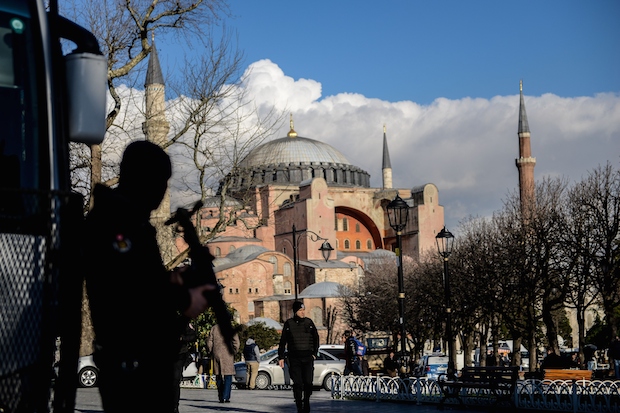On Tuesday, Isis’s strategy in Turkey changed. Nabil Fadli, a 28-year-old Saudi national linked to Isis, blew himself up in the heart of Sultanahmet, a tourist district of Istanbul. 11 tourists were killed, including ten Germans.
In some ways, it was familiar: this was Isis’s fourth successful attack on Turkish soil since June. Previous bombs, however, had targeted pro-Kurdish and leftist groups: one, last July, targeted Suruç in the Kurdish south-east; in October, another took over 100 lives in at a peace rally in Ankara.
The perpetrators of both these attacks were traced back to an Isis cell in the Turkish city of Adıyaman, and the government was criticised for failing to respond to repeated local pleas for intervention earlier in the year. As Isis planned, discord was sown between the Turkish state and its Kurdish citizens: by the end of the year, a two-and-a-half-year peace process with the PKK had fallen apart.
The Sultanahmet bomb was different.

Britain’s best politics newsletters
You get two free articles each week when you sign up to The Spectator’s emails.
Already a subscriber? Log in







Comments
Join the debate, free for a month
Be part of the conversation with other Spectator readers by getting your first month free.
UNLOCK ACCESS Try a month freeAlready a subscriber? Log in